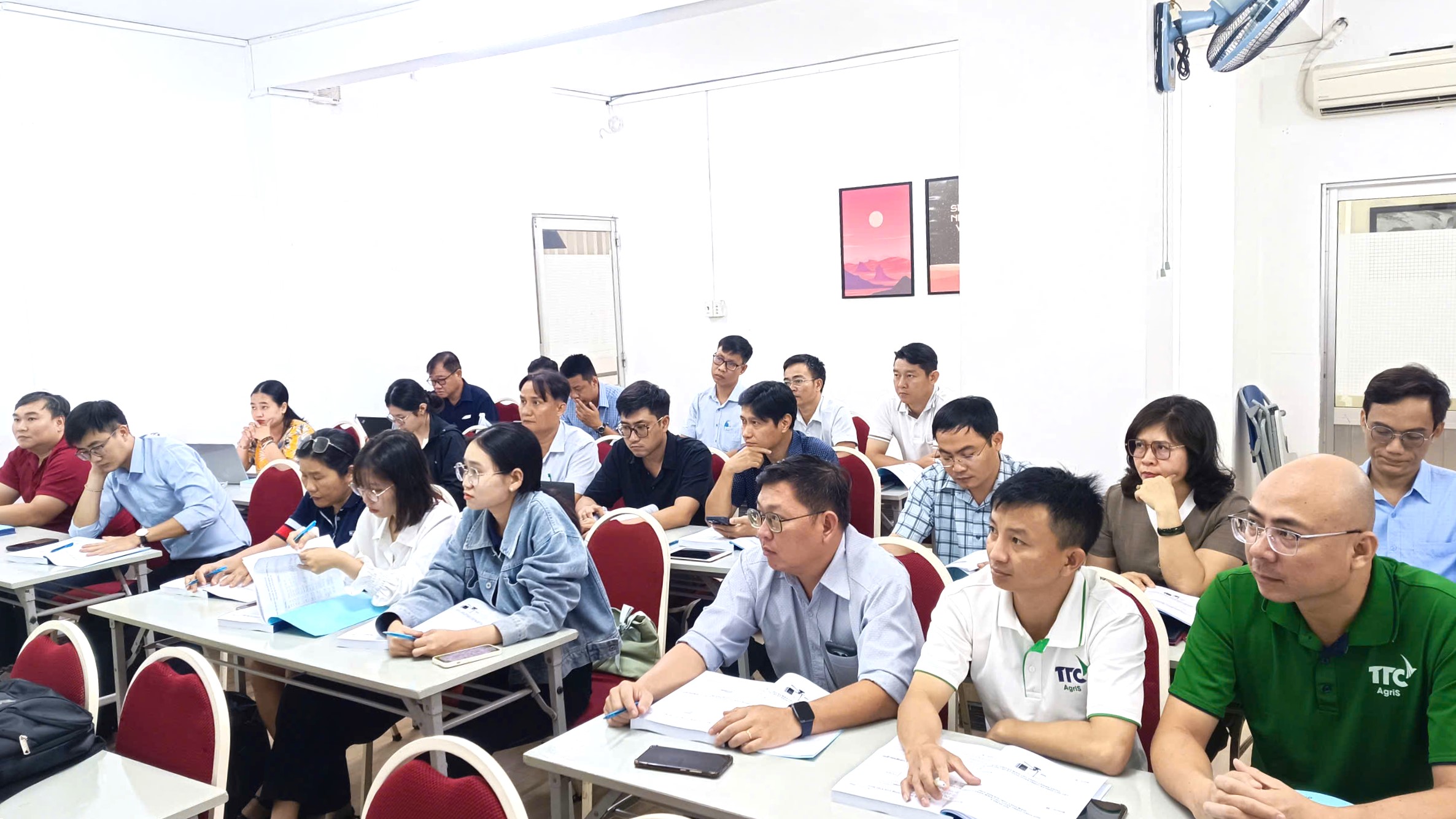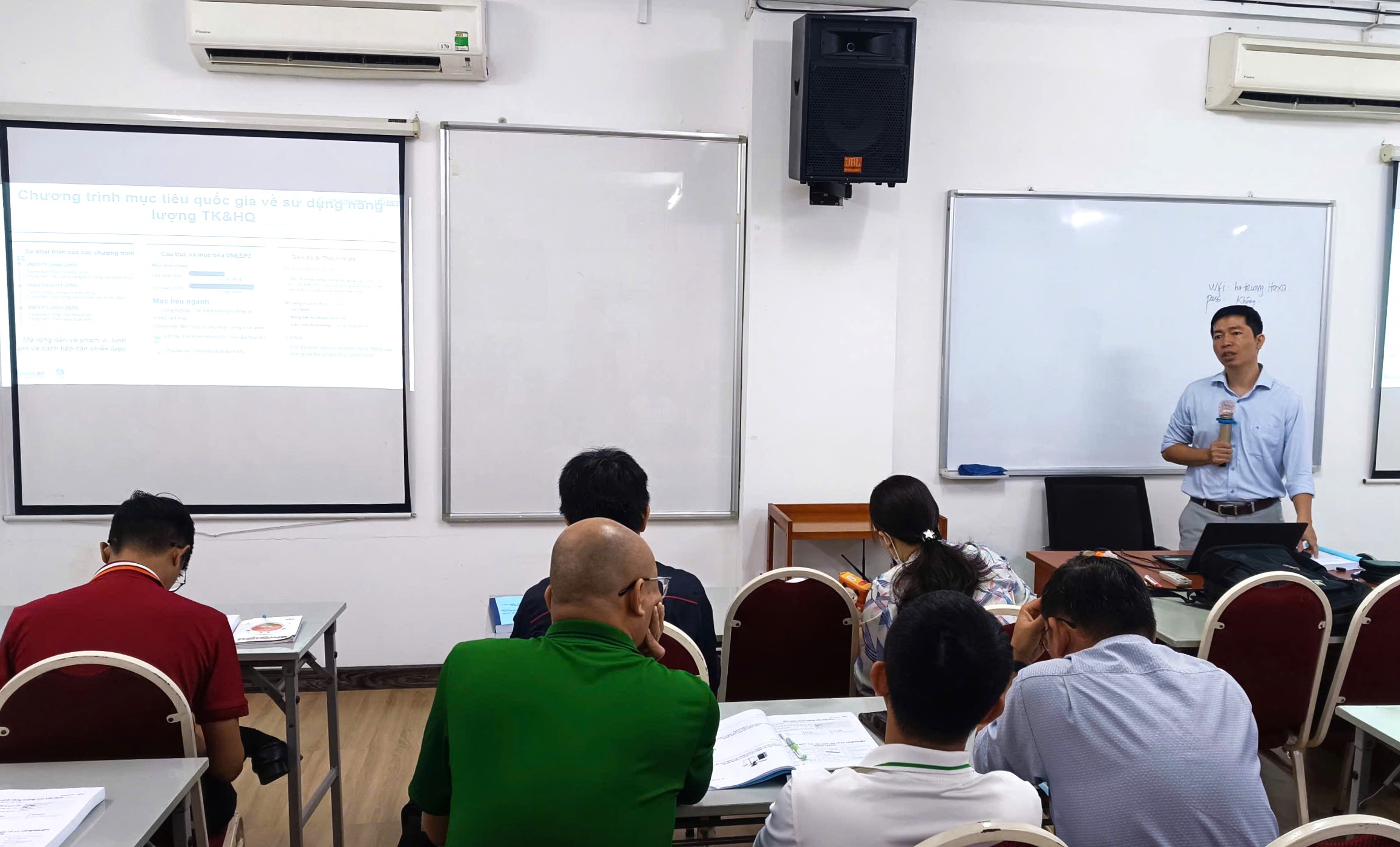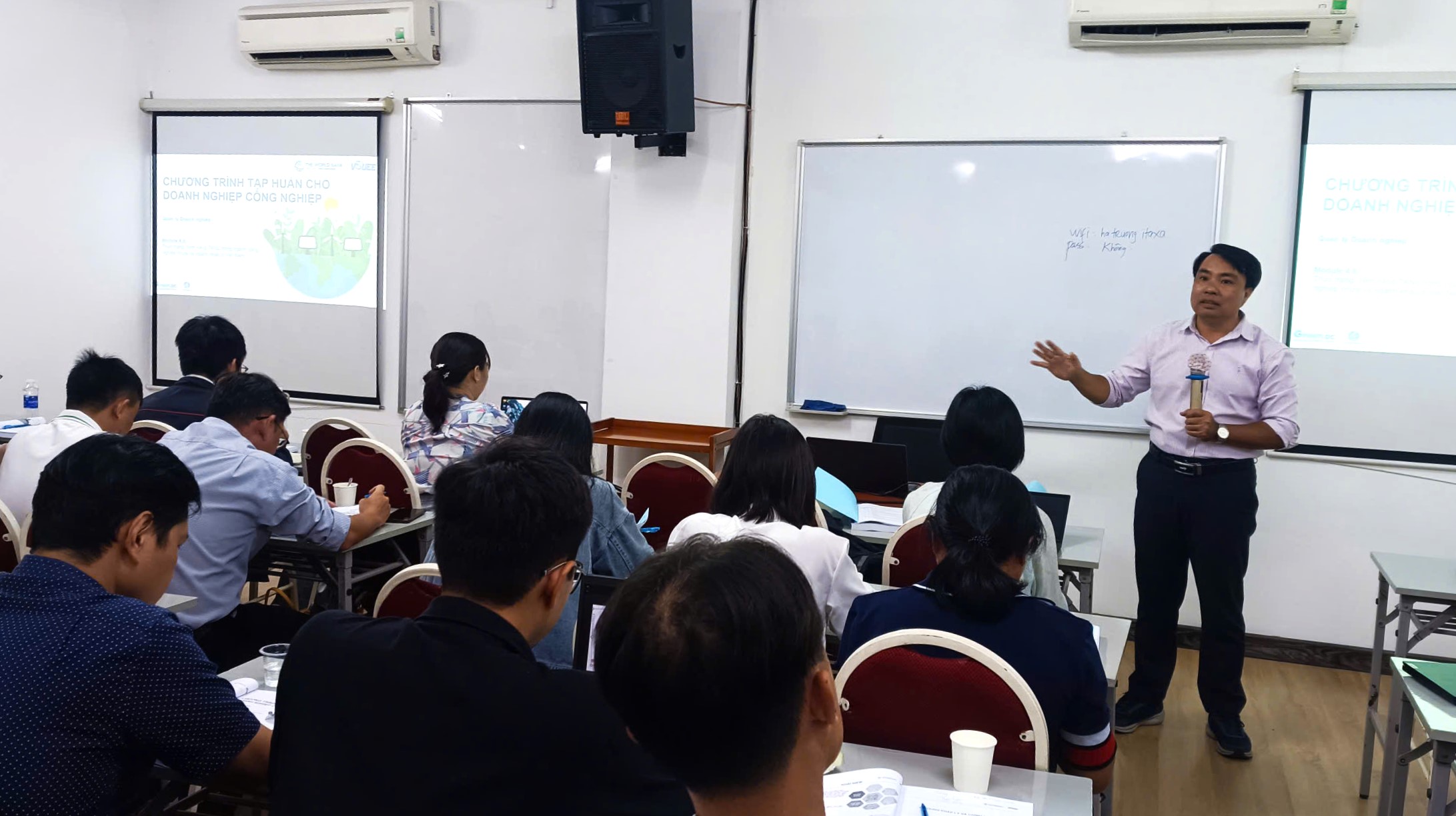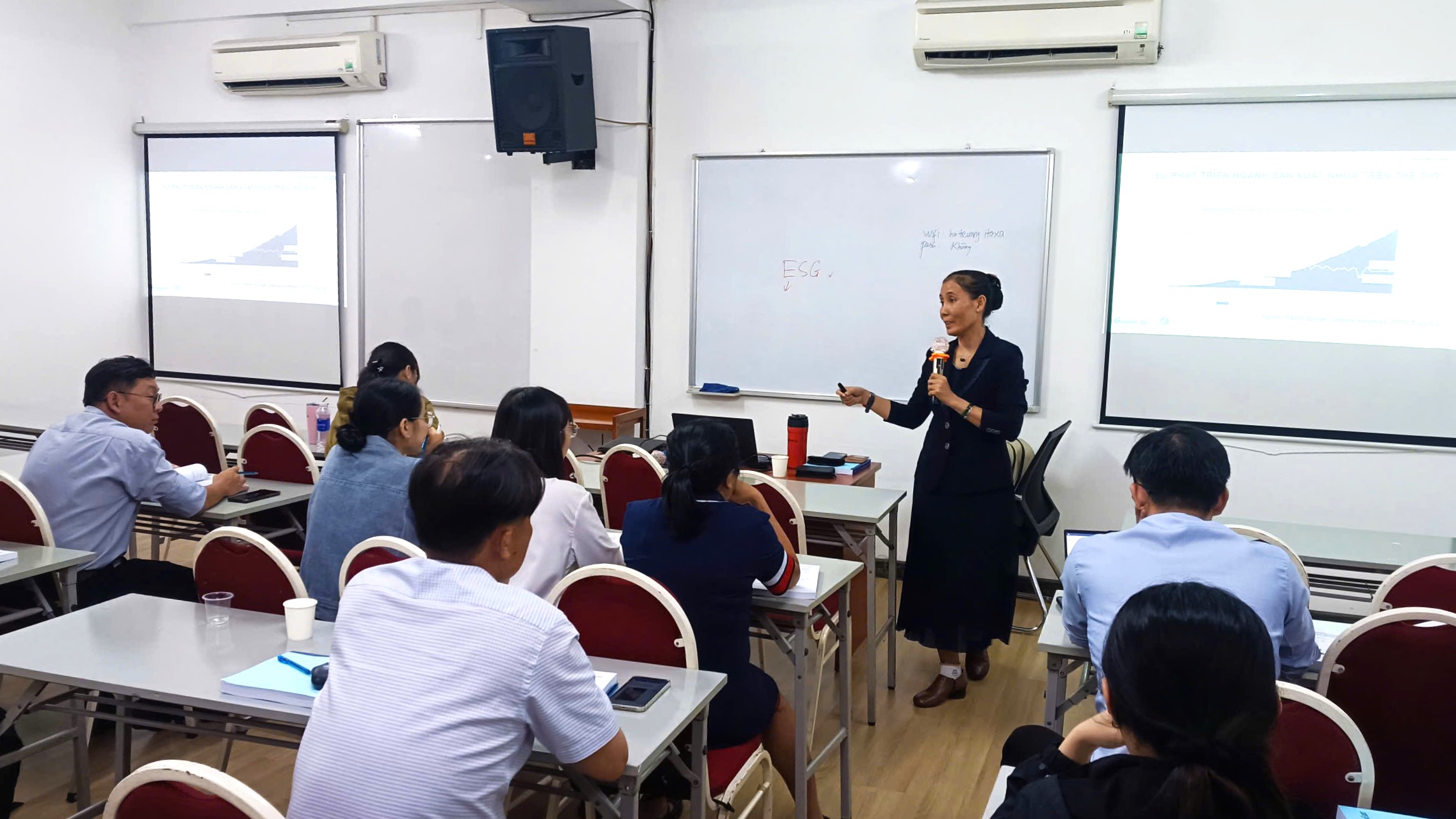The 4-day training course, taking place from July 21 to July 24, 2025, is part of the Vietnam Scaling Up Energy Efficiency project (VSUEE), implemented by the Ministry of Industry and Trade with support from the World Bank (WB).
This is the first in-depth training course specifically designed for energy management staff, and the Plastic sector is the first sector to receive such training support. This is a fast-growing manufacturing sector that plays a crucial role in the industrial supply chain, but it is facing numerous challenges in terms of energy efficiency and emissions reduction.
The training course "Scaling Up Energy Efficiency for Energy Managers of Plastics Industrial Enterprises" was organized in Ho Chi Minh City.
Energy Efficiency Potential in the Plastics Industry
According to statistics, the plastics industry is one of the high-energy-consuming sectors, with an electricity consumption of about 7.6 billion kWh/year, accounting for 18–22% of revenue spent on energy. This consumption is comparable to or lower than that of heavy industries like paper (20–30%) but higher than that of the textile industry (~8%).
However, many plastics enterprises are currently facing difficulties in reducing energy costs, mainly due to the use of outdated technologies in production lines. Examples include old hydraulic molding machines, obsolete heating systems, inefficient cooling/chiller systems, and manual extruders with low automation and no integration of waste recovery or recycling. In addition, the lack of investment capital in energy efficiency and conservation technologies and equipment, as well as limited awareness of energy efficiency solutions in production processes, are major barriers to the green transition in the industry.
The plastics industry holds significant potential for energy savings through energy audits, optimization of auxiliary equipment operation (air compressors, cooling systems, exhaust fans, etc.), thermal loss control, and improved technical capacity of operators.
Training Program: From Technical to Strategic
The training provided energy management staff at plastics manufacturing plants with practical knowledge and specialized tools to effectively identify and implement energy-saving solutions. Specifically, the program focused on: (i) Capacity building for identification and development of energy efficiency projects; (ii) Energy audit, financial analysis for energy efficiency projects; (ii) Introduction and application of Measurement, Reporting, and Verification systems; (iv) Marketing and business strategies for industrial manufacturing enterprises.
\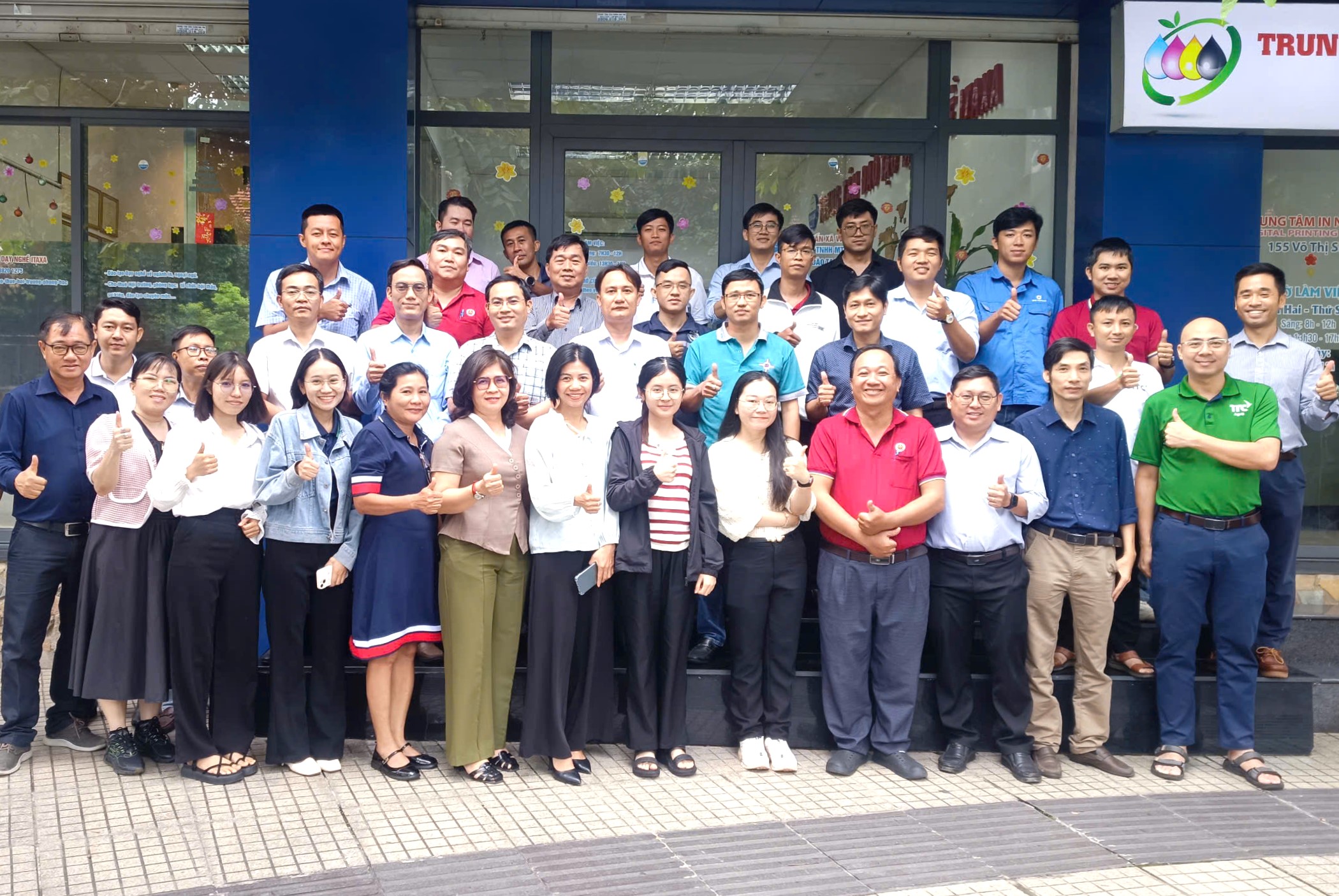
More than 40 students are energy managers in plastics industrial enterprises.
In particular, the course delved into specialized technological solutions for the plastics industry, such as: optimizing heating systems; utilizing waste heat for reuse in production; investing in new energy-efficient machines and equipment; regular maintenance to maintain operational efficiency; enhancing automation; applying smart sensors in energy management systems; adopting inverter technology; optimizing cooling systems, etc.
The training brought together experienced lecturers from technical universities and seasoned energy experts, with active participation from major enterprises in the industry. Group discussions, real-world sharing, and analysis of success stories helped trainees better understand how to apply knowledge in their factories.
Experienced lecturers from technical universities and experienced experts in the energy sector.
Towards Sustainable Development Goals
In the context of the global economy shifting toward low-carbon and circular production, enhancing energy efficiency not only helps reduce costs but is also a prerequisite for plastics enterprises to access major export markets such as the EU, US, and Japan, where carbon tax mechanisms and strict emission traceability requirements are being applied.
This training course is an important step in realizing Vietnam’s net-zero emissions target by 2050. At the same time, it supports the plastics industry in transitioning toward greening and improving competitiveness in the international market. In the coming time, the VSUEE Project will continue organizing specialized training courses for energy management staff in other energy-intensive industries, including: beverages, seafood, textiles, paper and pulp, bricks and ceramics, iron and steel, and cement—ensuring high applicability and strong dissemination of energy efficiency thinking throughout Vietnam’s industrial sector.
Through training activities under Component 2: Technical Assistance, the "Vietnam Scaling Up Energy Efficiency Project" aims to enhance the capacity and technical knowledge of energy managers in industrial enterprises. This, in turn, will promote the application of energy-saving solutions in production processes, contribute to the green industrial transition, and strengthen international competitiveness through effective energy use and sustainable development. |
VSUEE Project Management Board.
